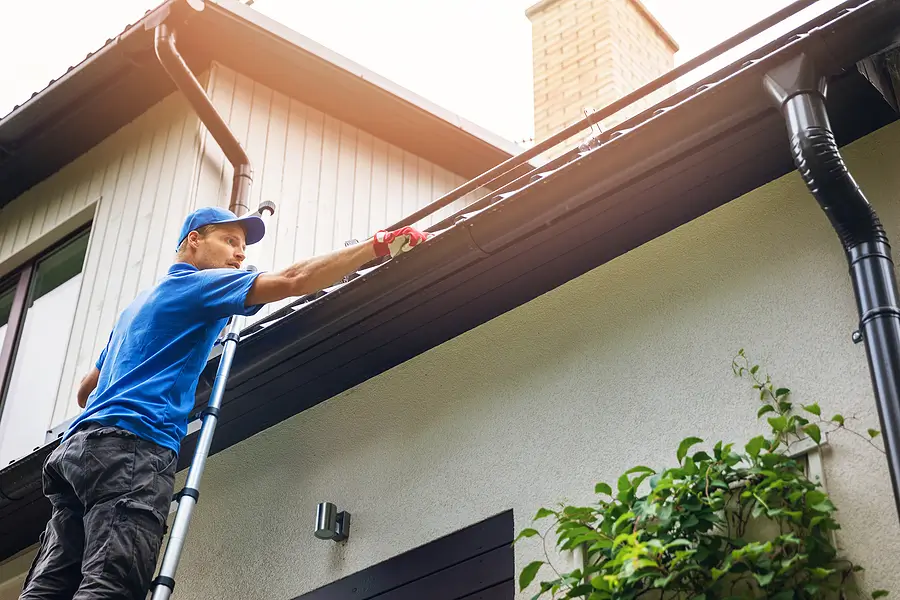Being a tenant in a Kansas City rental property doesn’t mean you're completely hands-off when it comes to property maintenance. While landlords are responsible for most major repairs and ensuring the home remains safe and habitable, tenants are typically expected to handle small, everyday maintenance tasks.
Taking care of these DIY responsibilities not only helps maintain the property’s condition but also supports a smooth landlord-tenant relationship. In this blog, we’ll explore the 10 common property maintenance responsibilities that tenants in Kansas City are often expected to manage on their own.
Key Takeaways
Tenants are expected to handle minor maintenance tasks such as changing air filters, unclogging drains, and replacing light bulbs.
Outdoor upkeep like lawn mowing and snow removal is often the tenant's responsibility in single-family rentals.
Regular cleaning and pest prevention help maintain a healthy and damage-free living space.
Understanding the lease agreement is essential, it should clearly outline which maintenance duties fall to the tenant.
Reporting larger issues promptly can prevent costly damage and disputes with the landlord.
Tenants can be held liable for damages caused by neglect or improper use of appliances and fixtures.
Clear communication and documentation are key to avoiding misunderstandings and ensuring smooth maintenance handling.
1. Changing Air Filters
Replacing or cleaning HVAC air filters every 1–3 months is one of the simplest and most essential maintenance tasks. Clogged filters reduce airflow, strain the system, and result in higher energy bills. Most lease agreements in Kansas City rentals include this as a tenant duty because it directly impacts the efficiency of the heating and cooling system.
2. Basic Lawn Care
Tenants in single-family homes are often responsible for mowing the lawn, trimming hedges, and clearing leaves unless otherwise stated in the lease agreement. Keeping the exterior tidy improves curb appeal and prevents HOA violations if the property is part of a managed community.
3. Unclogging Drains
Clogged sinks, tubs, or toilets are usually caused by hair, grease, or debris buildup. You are typically expected to resolve minor clogs using tools like plungers or over-the-counter drain cleaners. Persistent or recurring problems, however, should be reported to the landlord.
4. Replacing Light Bulbs and Batteries
Burnt-out light bulbs and low batteries in smoke detectors or thermostats are simple fixes that fall under tenant responsibility. Ensuring these devices are working properly not only helps keep the home functional but also supports safety compliance.
5. Pest Prevention
You are expected to take reasonable steps to prevent pests, while Kansas City landlords must provide habitable housing free of infestations. This includes regular cleaning, taking out the trash, sealing food properly, and avoiding leaving standing water in sinks or tubs.
6. Snow and Ice Removal
In many Kansas City lease agreements, tenants like you in single-family homes or townhouses are responsible for removing snow and ice from sidewalks, driveways, and porches. Failing to do so can lead to accidents or fines from local authorities.
7. Replacing Toilet Flappers and Shower Heads
A leaking toilet or weak water flow in the shower often comes down to simple fixes like replacing the toilet flapper or cleaning/replacing the shower head. These tasks are easy, affordable, and commonly expected to be handled by tenants unless noted otherwise in the lease terms.
8. Maintaining Cleanliness
Regular cleaning isn’t just about aesthetics. Dust, mold, and grime can lead to property damage or health risks if left unchecked. You are expected to keep your unit clean, especially in kitchens and bathrooms, to avoid deeper issues that might require professional remediation.
9. Reporting Bigger Issues Promptly
While this isn’t a DIY repair, one of the most critical tenant responsibilities is notifying the landlord immediately when a maintenance issue beyond their control arises, whether it's a water leak, broken appliance, or structural damage. Early reporting helps prevent more expensive repairs.
10. Proper Use of Appliances and Fixtures
Using appliances and fixtures as intended is key to maintaining the condition of the property. For example, overloading the dishwasher, misusing the garbage disposal, or yanking on window blinds can lead to damage that you may be held responsible for repairing.
What Does the Lease Agreement Say?
Understanding your lease agreement is vital to determining which responsibilities are yours. In Kansas City, lease agreements should clearly outline tenant and landlord duties. Don’t hesitate to ask before signing if something isn’t clear.
Your lease may also include specific maintenance clauses such as filter replacement schedules, lawn care rules, and pest control policies. Staying compliant with these terms helps protect your security deposit and maintain good standing with your landlord.
When Tenants Should Contact the Landlord
There are many small tasks you should handle, but not everything is your responsibility.
Here are examples of issues that should be reported to your landlord:
HVAC or major appliance breakdowns
Electrical or plumbing malfunctions
Water damage or leaks
Mold, rodent, or insect infestations
Roof or structural damage
Kansas City landlords are legally obligated to maintain habitable housing under both local and state laws. This means ensuring the rental is safe, functional, and up to code.
Preventing Disputes Over Maintenance
Clear communication is key to avoiding misunderstandings or legal disputes.
Make sure to:
Submit maintenance requests in writing
Keep a record of repairs and communications
Document the condition of the property during move-in and move-out
Follow your lease agreement's guidelines for reporting and repairs
Doing your part as a tenant shows responsibility and helps develop a positive, cooperative relationship with your landlord.
Respecting the Property Benefits Everyone
Being proactive about your DIY responsibilities as a tenant isn’t just about keeping your space comfortable. It also plays a key role in protecting your lease terms, avoiding unnecessary charges, and ensuring the property remains a great place to live. Most of these tasks are simple, quick, and inexpensive, but neglecting them can lead to more costly consequences for both parties.
Partner with Professionals Who Support Tenants and Landlords
At Oz Accommodations, we believe a great rental experience starts with clear expectations and open communication. Whether you're a tenant learning the ropes or a landlord looking to streamline property management in Kansas City, we’re here to help every step of the way.
From lease agreements to routine maintenance policies, we ensure that both the landlord and tenants like you understand their roles in preserving the value and comfort of the rental property.
Contact us today to learn how we make property management simple, fair, and effective for everyone involved.
Frequently Asked Questions
1. Can my landlord charge me for maintenance issues I didn’t report?
Yes, in many cases. If you fail to report a maintenance issue like a water leak or appliance malfunction and it causes further damage, the landlord may hold you responsible for part or all of the repair costs. Timely communication is essential to avoid these situations.
2. Am I allowed to make small improvements, like installing new showerheads or light fixtures?
In most cases, yes, especially if the improvement is easily reversible and doesn’t damage the property. However, always check your lease and get written approval from your landlord before making any changes, even minor ones. Unauthorized modifications can lead to deductions from your security deposit.
3. What if I’m physically unable to perform some DIY maintenance tasks?
If you have a disability or health condition that prevents you from handling certain tasks like snow removal or changing filters, you should inform your landlord. Under the Fair Housing Act, reasonable accommodations must be made when applicable.


